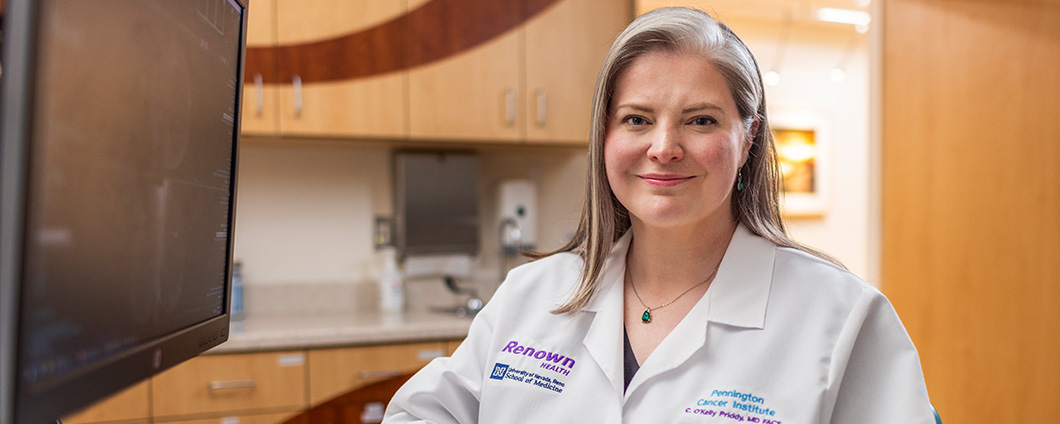Search
Results for 'gynecology'
Clear-
How Regular Cervical Cancer Screenings Can Save Lives
According to the American Cancer Society, approximately 13,820 new cases of invasive cervical cancer will be diagnosed, and 4,360 women will die from cervical cancer. However, cervical cancer is preventable with regular screening tests and the HPV vaccine. It’s important to note that medical advances have allowed progress in diagnosing and treating cervical cancer. While it used to be one of the most common causes of cancer death for American women, the incidence of death has significantly declined. What to Know About the HPV Vaccine HPV vaccination is the best way to prevent cervical cancer and is recommended for all youth starting as early as age 9, or for teens and adults up to age 45 who didn’t start or finish the series. In Nevada, only 50.1% of teens ages 13-17 have been vaccinated for HPV. There are 13 types of HPV, and the vaccine Gardasil 9 protects against 9 of those HPV strains, greatly reducing the incidence of cervical cancer among vaccinated individuals. What to Know About Cervical Cancer Screenings The CDC says the most important thing you can do to help prevent cervical cancer is to have regular screening tests starting at age 21. And there are two common tests that can detect early stages of cervical cancer (or precancer) and improve health outcomes. The pap test (or pap smear). This screening looks for precancers. Women should begin getting pap smears when they’re 21. The human papillomavirus (HPV) test looks for the virus that can cause these cell changes. Cervical Cancer Screening Schedule The American Cancer Society offers the following guidelines for screenings: All women should begin cervical cancer screening at 21. Women between 21 and 29 should have a pap test every three years. Beginning at 30, the preferred way to screen is with a pap test combined with an HPV test every five years. This is called co-testing and should continue until age 65. A pap test (or pap smear) is performed during a regular screening appointment to look for precancers, cell changes on the cervix that might become cervical cancer if they are not evaluated or appropriately treated. Typically outpatient procedures can reduce the risk of long-term health impacts that prevent pre-cancerous cells from becoming cancer cells. Women over 65 who have had regular screenings in the previous ten years should stop cervical cancer screening as long as they haven’t had any severe precancers found in the last 20 years. How to Get Screened Request an appointment with your primary care physician or OBGYN to schedule a screening.
Read More About How Regular Cervical Cancer Screenings Can Save Lives
-
Breast Surgical Oncology
Breast Surgery Care at Renown Health Renown Breast Surgery Care, located within the Center for Advanced Medicine B, is a comprehensive, fully integrated breast surgery clinic, addressing a wide spectrum of breast problems ranging from benign to cancerous: Benign breast conditions such as fibroadenoma, phyllodes tumors, and nipple discharge Breast cancer risk assessment and genetics High risk breast lesions such as atypical ductal hyperplasia, atypical lobular hyperplasia, LCIS, papillary lesions, and radial scars Advanced breast cancer surgical techniques including oncoplastic surgery for best aesthetic outcomes possible and nipple sparing mastectomies, working closely with skilled plastic reconstructive surgeons. Our highly experienced breast surgical oncologists are continuing to expand our team to better meet the evolving needs of our community and beyond. We are excited to soon be incorporating an oncology wellness team who can further support our patients with focused nutritional guidance, functional assessments for prehabilitation needs prior to surgery or medical treatments, and guidance for development of physical activity and other exercise programs, for best outcomes in cancer treatment as well as future risk reduction. The National Accreditation Program for Breast Centers (NAPBC) is a rigorous process designed to ensure high quality care for breast centers by meeting thoughtfully created standards that are constantly being reviewed and updated for ongoing improvement of patient care. We are the only NAPBC-accredited program in Northern Nevada.

